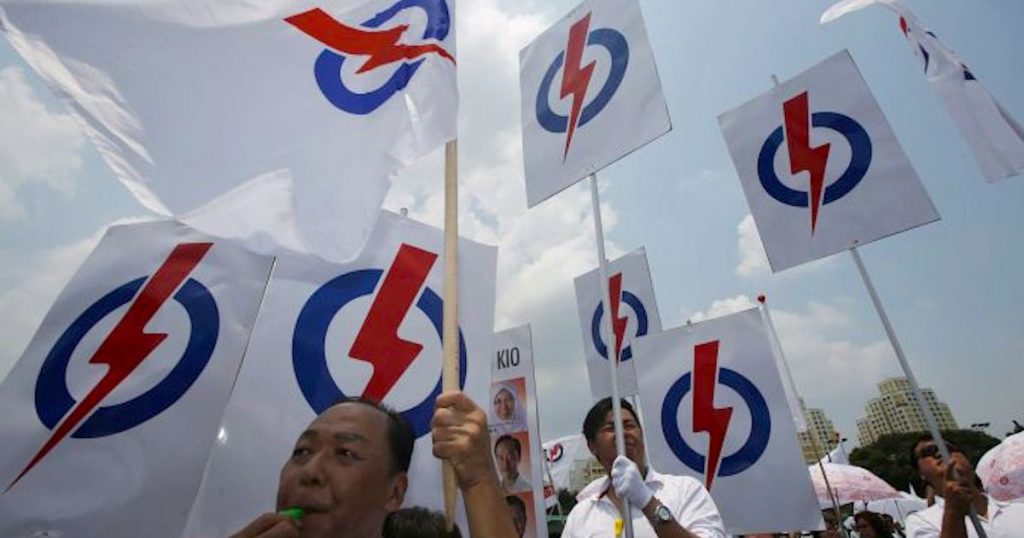General Election is upon us now and it’s time to get educated on the different political parties that will be contesting in the upcoming election.
Who are they? What do they stand for? What are their track record?
In this series, we will cover everything you need to know about the party so you can have a better understanding of what they’re about before you cast your votes.
We are kickstarting the explainer with the oldest player in the game: People’s Action Party (PAP).
A Quick History Of PAP
PAP has ruled Singapore since 1959, when it became the self-governing state’s first fully elected Government.
It was founded in 1954 by Mr Lee Kuan Yew with the primary objective of striving for Singapore’s independence from British rule.
Other founding members include Toh Chin Chye, Samad Ismail, Lee Gek Seng, Fong Swee Suan, Mofradi bin Haji Mohamed Noor, P Govindasamy, Ismail Rahim, A K Karuppiah, S Rajaratnam, C V Devan Nair, Tann Wee Keng, Tann Wee Tiong and Chan Chiaw Thor.
Mr Lee Kuan Yew was the party’s first secretary-general. He also became Singapore’s first prime minister after leading the party to victory in the 1959 general election.
Emeritus Senior Minister Goh Chok Tong — who recently retired from politics — took over leadership of the party from 1992 to 2004 before passing the baton to Prime Minister Lee Hsien Loong (son of Lee Kuan Yew).
The party is currently still led by PM Lee, who is also the PAP secretary-general. The 68-year-old has said that he will hand over the reins of the party before he turns 70, which means that this upcoming election could be his final one.
What Do They Stand For?

During its formative years, the main objectives of the PAP as laid out in their 1954 manifesto were to seek for the independence of Singapore through merger with the Federation of Malaya and to “establish an economic order which will give all citizens the right to work and the full economic returns for their labour and skill.”
Some of its key policies over the years include adopting an export-orientated development strategy which helped the nation flourish economically after separation from Malaysia, establishing the Housing and Development Board and public housing programmes, as well as the Central Provident Fund.
Over 60 years later, PAP has evolved to become a conservative political party with a mission to “build a fair and just society where the benefits of progress are spread widely to all.”
Meritocracy is a key governing principle adopted by the PAP government. The PAP leaders believe that meritocracy helps the brightest students rise to the top and contributes to the establishment of a corrupt-free and efficient civil service. Such a system of rewards and opportunities is seen to be crucial in maintaining social harmony in Singapore’s multiracial society.
What Do S’poreans Think About PAP?
By any measurement of quality and standards of governance, PAP has done a good job in managing Singapore. It often harps on its impressive track record, and lauds about how it has helped build Singapore “from mudflat to metropolis” since its founding.
However, like any country, there’ll always be people who oppose the ruling party and the establishment. That said, there will always be critics of the PAP.
It has often been criticised for the passing of laws that suppress free speech and other civil liberties.
Discontent towards the party has also grown in recent years as housing prices soared while wages stagnated amid a surge in foreign workers.
Housing, among other things, is extremely expensive in Singapore. Due to the rising costs of living, income inequality has become a big problem here.
A 2018 government report revealed a slower pace of income growth for the bottom 50 percent households, contributing to a widening gap between rich and poor. A sizeable program of transfers, subsidies and assistance exist for low-income Singaporeans, but social imbalances remain.
In contrast, many Singaporeans have constantly called for the government to review minister salaries, which are among the highest in the world.
Many Singaporeans also feel that the only reason PAP continues to stay in power is because they historically sought to weaken political opposition through lawsuits. One case was against Singapore Democratic Party’s Chee Soon Juan, who was sued into bankruptcy.
Former chief of opposition party Workers’ Party, also once quipped that the Singapore government has the tendency to “sue until your pants drop!”
Past General Election Results
PAP has won every general election since Singapore’s independence in 1965.

In the last general election in 2015, the party contested all 16 Group Representation Constituencies (GRCs) and 13 Single Member Constituencies (SMCs), losing only Aljunied GRC and Hougang SMC to the opposition Workers’ Party.
It got a 69.86 per cent vote share in GE 2015 — this was an improvement from the 60.1 per cent it obtained in GE 2011, the party’s lowest vote share since 1965.
Before Parliament was dissolved for the upcoming election, the party held 83 out of 89 seats.
Where Will They Be Contesting?
It’s easier to ask where will they not be contesting because they’re everywhere.
Every constituency will be contested by a PAP team or person, and they are realistically the only party who can form a majority in Parliament on their own.
Under the new electoral boundaries, they are expected to contest in all 17 GRCs and 14 SMCs.

The PAP has a nifty feature on their website where you can search for who’s running in your area simply by entering your postal code.
Disclaimer: Vulcan Post does not support or endorse any political parties.
Stay tuned for the next instalment on opposition leader Workers’ Party. In the meantime, check out our General Election 2020 microsite for more election-related content.
Featured Image Credit: Reuters











